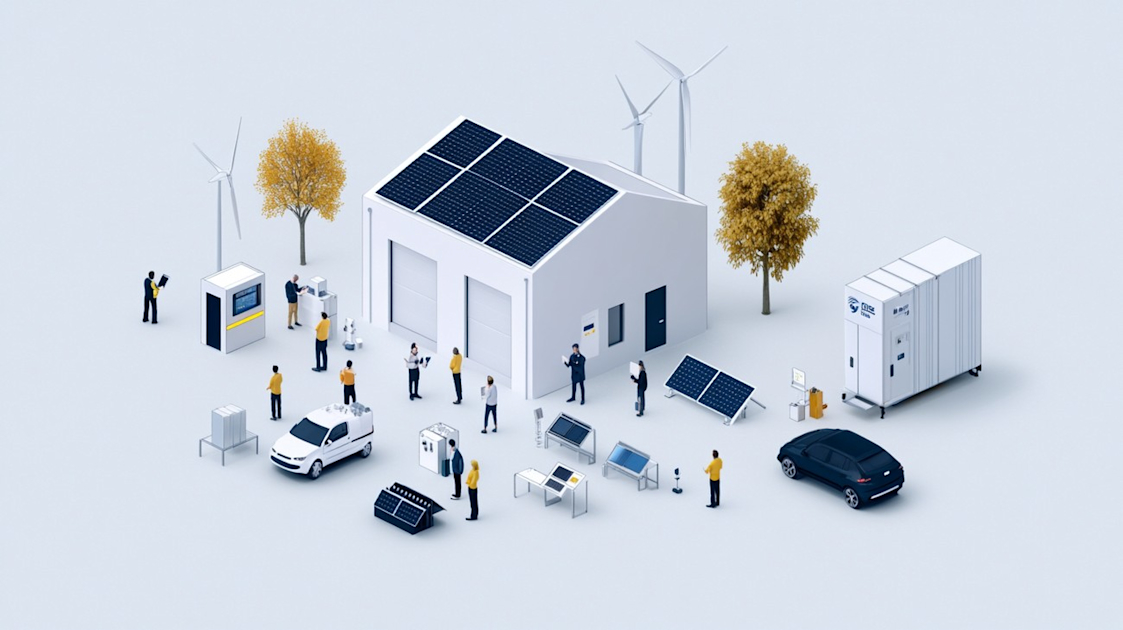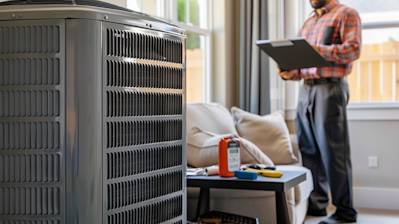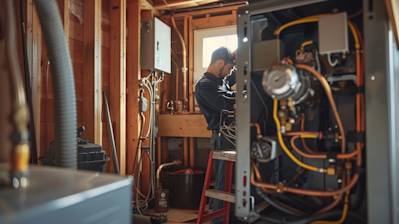In the world of heating and cooling, building construction, and energy consumption, a concept that is frequently discussed is the British thermal unit (BTU). For most people, however, BTU is somewhat of a mystery. So, what exactly is BTU? Read on to discover the all-important details regarding this crucial unit of measure.
What Is BTU?
To put it simply, the British thermal unit (BTU) is a traditional unit of heat. We can say a BTU is the amount of heat necessary to elevate the temperature of one pound of water by one degree Fahrenheit. Noteworthy is that this increase is under one specific set of pressure. The standard measurement dictates that this setting parameter should be at sea level.
A BTU comes in play in a spectrum of scenarios. These primarily comprise activities that involve temperature changes like air conditioning, heating, and cooking. BTU measurements further find applications in commercial, industrial, and residential settings.
The Importance of BTU
To comprehend the importance of BTU, it’s imperative to understand that heat energy transactions are continuously happening around us. Understanding the BTU measure helps us accurately measure these heat changes and plan our use of different appliances accordingly. It essentially provides an objective measure to compare various heating and cooling systems.
- It is fundamental in purchasing an air conditioner. A model with a high BTU rating will cool a larger space as compared to one with a lower rating.
- When using a gas grill, the BTU rating can determine the maximum heat it can produce. A high rating implies it can generate a significant amount of heat.
- Heaters also have BTU ratings. A higher rating means the heater can warm up a more substantial area.
BTU in Different Energy Contexts
When we delve further into understanding BTU, we find this measurement in many energy contexts.
In Air Conditioning and Heating
When we talk about air conditioning or heating systems, you will often see their capacity listed in BTU per hour. This representation describes the amount of heat that the unit can remove from (air conditioning) or add to (heating) a space in one hour. The correct BTU rating for your needs would depend on the space's size, how well it’s insulated, and other similar considerations.
In Gas Grills
In the realm of gas grills, the BTU rating typically refers to the gas input capacity of the burner. What you want to look at here is the BTU-per-square-inch rating. This number indicates heat density, which is a more critical measure for cooking performance than just BTUs alone.
In Power Generation
In larger scale operations like power plants, BTUs provide a common measure of energy output. It allows for comparison among different types of fuels and energy sources.
Calculating BTU
The crucial step to calculate the BTU requires consideration of your specific space and the variables that could affect your heating or cooling needs.
BTU Calculation for Cooling
- Measure the room: Determine the room’s length, width, and height. Multiply the three to get the volume of the room.
- Factor in the windows and doors: These openings allow heat to enter or escape a room, affecting temperature. Estimate the total area of the windows and doors.
- Account for occupants: Remember, humans generate heat.
- Consider the location: Whether the room is north-facing or south-facing can cause temperature fluctuations.
- Evaluate room usage: A kitchen will have different heat inputs compared to a bedroom.
- Add all these factors and then utilize an online BTU calculator to compute the accurate figure.
BTU Calculation for Heating
Calculating heating requirements is similar but considers the outside temperature and level of insulation in a building.

Frequently Asked Questions about What Is Btu
How is a BTU defined?
A BTU is a measure of the amount of heat required to raise the temperature of one pound of water by one degree Fahrenheit. This measurement is a standard measurement used in various fields to quantify the amount of energy or heat output a device can generate.
Why is BTU Important?
Understanding BTUs is crucial when you're considering purchasing a new space heater, air conditioner, or any other device that generates heat. By knowing the BTU rating of a device, you can determine if it will be sufficient for your heating or cooling needs. It allows consumers to compare effectively the performance of various devices.
Can a higher BTU capacity be more beneficial?
Higher BTU amounts mean that the heater or air conditioner can generate more heat or cooled air. Therefore, it might provide faster results in terms of achieving the desired temperature. However, it's important to match the BTU capacity to your specific needs since higher BTUs typically consume more energy, increasing the cost.
How are BTUs related to energy efficiency?
In heating and cooling systems, BTUs are used to specify the energy output. However, the energy input (what the system consumes in terms of electricity or fuel) isn't necessarily proportional. In this regard, the efficiency of a system is given as a ratio of BTUs to the input energy, often described as an EER or Energy Efficiency Ratio.
How can I calculate the needed BTUs for my room?
The size of your room significantly impacts the BTUs needed. Typically, you would need approximately 20 BTUs per square foot. However, other factors can come into play, such as the number of windows, insulation, and regional climate.
What happens if I use an air conditioner with too many BTUs?
Too many BTUs for a small space can lead to an inefficient cooling process. The air conditioner may cool the room too quickly without properly dehumidifying the air, leaving the room feeling damp and cold. It's essential to match your BTU needs to the size of your room for the most efficient cooling.
Is BTU the same for gas and electricity?
While BTU is also used as a measure of energy for both gas and electricity, the conversion factor varies. For natural gas, 1 cubic foot is approximately equal to 1,030 BTUs. For electricity, it's about 3.41 BTUs per watt-hour.

Pros of Understanding BTU
Universal Measurement
Understanding what a BTU is can contribute to greater overall scientific literacy. The British Thermal Unit (BTU) is a universal measurement of heat energy. Whether you're studying energy, working in a related field, or just curious about the world around you, understanding BTUs can come in handy.
Helpful in Energy Efficient Home Planning
If you're a homeowner, understanding BTUs can assist in planning for energy efficiency. For example, air conditioning units are often rated in BTUs. Knowing this can help you understand the energy needs of your home, and select the most appropriate and efficient cooling system. Thus, it can help in making sound economic decisions and lower energy costs.
Useful in the Field of Cooking
BTUs are also used to measure the energy output of gas stovetops and grills. So, if you love to cook or grill, understanding BTUs can help you select the best appliance for your needs.
Relevant in Environmental Discussions
Additionally, BTU is an important concept in discussions about fossil fuels, renewable energy, and the environment. When we talk about reducing our energy usage or carbon footprint, we're essentially talking about reducing consumption of BTUs. This increases relevance in today's world where there's an increased focus on reducing carbon footprint.
Cons of Understanding BTU
Misunderstandings While Conversion
While BTUs are a standard, they may not be the easiest to understand, particularly due to conversion factors. You may need to convert BTUs into other units of measurements like watts or joules, depending upon the context, this can cause confusion and misunderstandings.
Limited Usage
It's interesting to know about BTUs, but apart from specific contexts like energy efficiency planning, cooking, or home heating, the day-to-day applications for knowledge of BTUs are limited. For someone not involved in such fields, understanding BTUs may seem irrelevant.
BTUs Can be Misleading
In the context of home appliances, higher BTUs doesn't always equate to better performance. For example, with air conditioners, a unit with a high BTU rating may cool a room quickly, but it may also cool the room unevenly and be less energy-efficient. Therefore, an understanding of BTUs without the context might lead to wrong purchases.
Difficulty in Understanding for Non-science Backgrounds
BTUs are a scientific concept. If you're not accustomed to thinking in terms of energy transfer or thermal units, wrapping your head around what a BTU is may be challenging. The concept involves a certain level of complexity which can deter non-science students or individuals from fully grasping it.

Myths and Misconceptions about BTU
Known as British Thermal Units, BTUs are units of heat energy often used to measure the energy efficiency of appliances like air conditioners and heaters. While BTU is a widely accepted standard of measurement, there are several misconceptions that cloud public understanding. Let’s take an in-depth look at these myths and misconceptions and dispel them with facts.
Myth 1: More BTUs mean more efficiency
Misconception
One common misconception is that a higher BTU rating equals a more efficient unit. People tend to get attracted to big numbers thinking that a greater number of BTUs means the appliance will function better or cool/heat their home much faster.
Fact
In reality, an appliance with a BTU rating that's too high for your needs won't effectively increase efficiency. An overly powerful unit may cool or heat the area too quickly, cycling on and off frequently and wearing parts down prematurely. This not only leads to reduced lifespan of your device but could also create an uncomfortable environment with fluctuating temperatures. The key is to find an appliance with the right BTU count for your specific needs which can maintain a consistent comfortable temperature.
Myth 2: BTUs alone determine appliance performance
Misconception
Another myth is the belief that BTUs alone determine the performance of a heating or cooling unit. This is an oversimplification since people tend to overlook other associated factors contributing to the effectiveness of a device.
Fact
A unit's performance isn't determined by BTUs alone but also depends on factors like energy efficiency ratios (EER), seasonal energy efficiency ratios (SEER), and heating seasonal performance factors (HSPF). Other relevant factors include the size and insulation quality of the space you're trying to cool or heat, outside temperature, and even the number of people commonly present in the room.
Myth 3: All BTU calculations are the same
Misconception
Many people believe that all appliances with the same BTU capacity will perform at the same level. They often overlook the fact that BTU measurements can vary depending on the specific application or industry.
Fact
Different standards are used to calculate BTUs for different types of appliances. For instance, an air conditioner's BTU level is calculated differently than a furnace's. Such differences should be taken into account when comparing appliances, especially across different manufacturers or appliance types.
Myth 4: BTUs don't matter for small spaces
Misconception
There's a misconception among some users that for small rooms or spaces, BTUs don't matter. This stems from the belief that in small areas, any heater or air conditioner would be sufficient regardless of its BTU rating.
Fact
In reality, even for small spaces, picking an appliance with the correct BTU is important. A unit that's too strong may lead to uncomfortable temperature swings and energy inefficiency, while a unit with low BTUs might struggle to reach the desired temperature, resulting in continuous running and potential overheating. The energy efficiency and the comfort of the inhabitants rely heavily on the appliances' optimal BTU value.
Myth 5: BTU ratings are definitive
Misconception
Many people believe that the BTU number given by manufacturers is definitive and completely accurate, meaning this is the precise heat capacity the equipment will produce.
Fact
These are often maximum potential ratings, achieved under ideal conditions. The actual output of an appliance, be it a heater or air conditioner, could differ based on multiple real-world variables such as the condition of the unit, the ambient temperature, or how well insulated the room is.
In conclusion, while BTUs are significant for determining the capacity of heating, cooling, and other appliances, they should not be considered in isolation without factoring in the specific requirements of your home. Misunderstanding BTUs can lead to inefficient energy usage, higher costs, and less than optimal temperature control. Hence, it's important to dispel these misconceptions and have a clear understanding of how BTUs work.
Summary
So, to plainly answer "what is BTU", it is the measure of heat energy in the world of thermodynamics. BTU expresses the amount of heat required to increase the temperature of one pound of water by one degree Fahrenheit. It's a unit that might not be floating around in regular conversation, but it's incredibly important in industries such as heating and cooling, cooking, and a whole lot more.
Additionally, understanding BTUs can serve you well in everyday life, especially when it boils down to efficiency and cost. For example, knowing the BTU output of your air conditioner or heating system will give you a good idea of how effective and energy-costly it is. So, BTU isn't just some jargon. It has a practical understanding that can benefit everyone.
So don’t sweat next time when someone mentions BTU. It's not rocket science, it is simply the way how we measure heat. From HVAC engineers to homeowners, understanding BTUs and how to calculate them can be incredibly helpful and resourceful. Hence, be it a frigid winter day or the peak of summer, BTUs are keeping your surroundings comfortable!
About AirFlow Heating & Air
AirFlow Heating & Air is a renowned and trusted service provider, proudly operating in Sacramento, CA. With a relentless focus on customer satisfaction, we offer top-tier heating and cooling solutions to both residential and commercial clients. Our team of professionals is highly experienced and dedicated to ensuring optimal air comfort in every project we handle. Anchored by integrity, innovation, and top-notch workmanship, we handle everything from routine HVAC maintenance, installations, to complex repairs. Keeping your space comfortable and energy-efficient, all year round, is not just our job, it's our passion.








